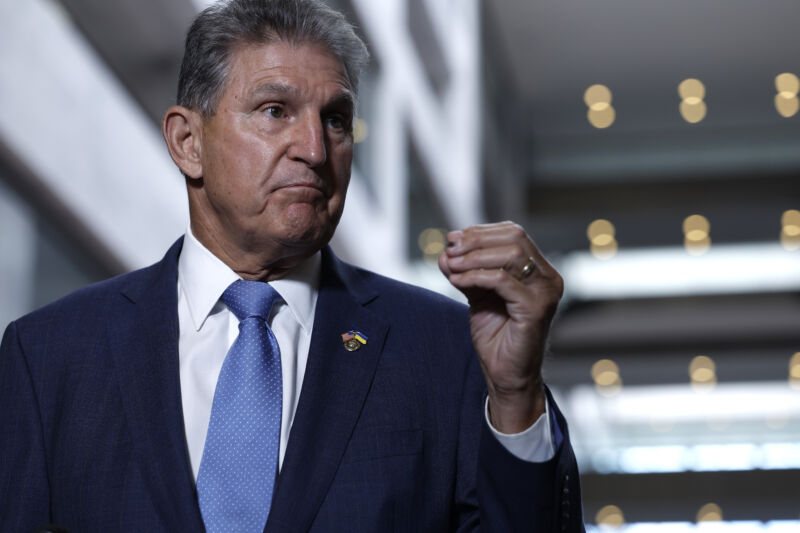Manchin rebuffs industry criticism of new EV tax credit

Enlarge / Sen. Joe Manchin (D-W.V.) speaking to reporters in the Hart Senate Office building on August 1, 2022, in Washington, DC. (credit: Anna Moneymaker/Getty Images)
Among the many provisions of the Inflation Reduction Act (IRA) of 2022 is a revamp of the federal tax credit for electric vehicles. The changes would restore the eligibility of Tesla and General Motors and includes a smaller credit for the purchase of a used EV. Despite this, the bill is running into opposition from the auto industry, and most of the EVs currently on sale would no longer qualify. But the bill's author, Senator Joe Manchin, has little time for complaints.
Currently, almost all new plug-in vehicles qualify for the plug-in electric drive vehicle credit, as laid out in Internal Revenue Code section 30D, introduced on the basis that the high cost of a lithium-ion traction battery is the main impediment to electric vehicles reaching price parity with their gasoline- or diesel-powered alternatives.
The credit is based on battery capacity. Starting at $2,917 for a plug-in vehicle with a 5 kWh pack, the credit increases by $417 per kWh to a maximum of $7,500. But there's a penalty for sales success-once an automaker has sold 200,000 qualifying plug-in vehicles, the credit begins to sunset. So far, this has only happened to Tesla and General Motors, both of which triggered the process in 2018.